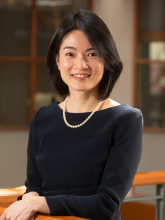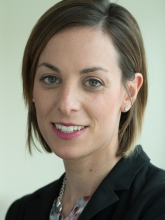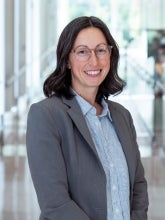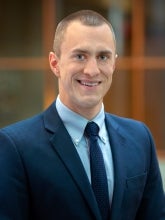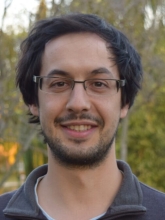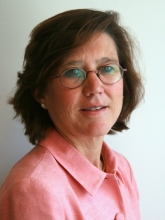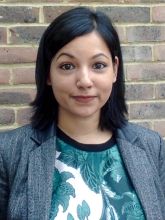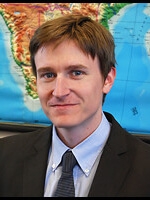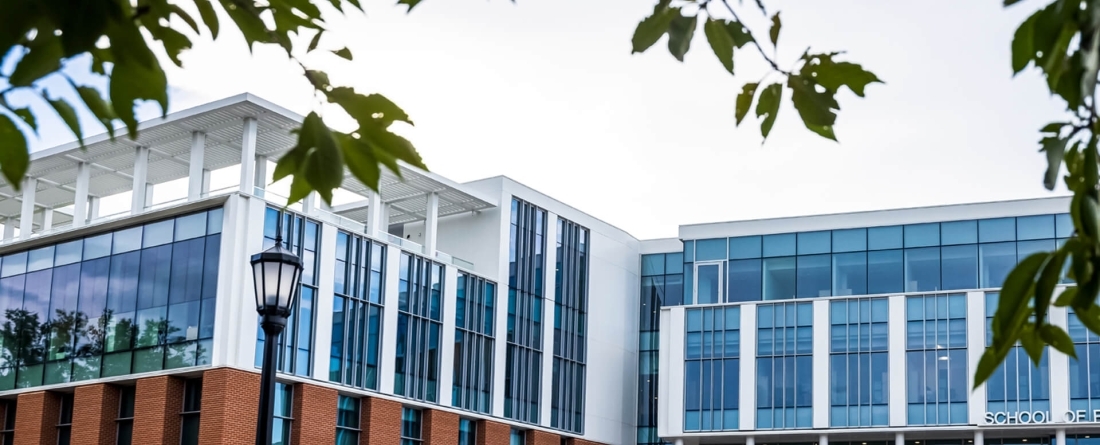
The Center for International and Security Studies at Maryland (CISSM) is offering $5,000 in seed funding for a collaborative effort involving two or more School of Public Policy faculty members, researchers, or Ph.D. students on a current public policy question that relates to CISSM’s broad and evolving agenda.
Topics of interest include:
- Managing emerging technologies
- Reducing nuclear risks
- Cybersecurity
- Human security
- Global governance
- Climate change
- Civil conflict
- International economic development.
The 3,000-5,000 word paper would be completed within the upcoming academic year, would be published as a CISSM Working Paper, and would be presented at a CISSM Forum. In addition, CISSM faculty and staff would provide support for the recipients to use the working paper as the basis for grant proposals and academic or policy-oriented publications.
Eligibility and Selection Process:
All School of Public Policy faculty and researchers are eligible to submit proposals for funding. Faculty or researchers are encouraged to collaborate with doctoral students and to propose projects that cut across disciplinary or specialization boundaries. Proposals will be evaluated for originality and intellectual merit, policy importance, relevance to CISSM and SPP’s strategic priorities, and appeal to potential external funders by a committee led by Dean Robert Orr, CISSM Director Nancy Gallagher, and Assistant Dean Chandrika Rallapalli.
How to submit a proposal for the 2023 competition:
Submit a 1-page narrative summary of the research you would like to complete that includes
- an explanation of the policy question that would be addressed by the working paper,
- enough context to show the question’s relevance and importance to the broader field in which it resides, and
- a description of how the work relates to CISSM’s and SPP’s research agendas.
Proposals and questions about the submission process and/or proposal requirements should be sent to David Backer at dbacker@umd.edu.
For best consideration, proposals must be received by Monday, April 17th, 2023.
This seed grant is supported by the Center for International and Security Studies at Maryland
(CISSM) and the Yamamoto-Scheffelin Endowment for Policy Research.
Past Seed Grant Winners
Ariel Petrovics
How does North Korea’s nuclear posture impact regional proliferation risks? This question motivates 2022 CISSM Seed Grant winner, Dr. Ariel Petrovics’, research focused on the ways in which different characterizations of North Korea’s nuclear strategy influence South Korean public opinion on developing its own nuclear program. Petrovics and research collaborator, Dr. Hyun-Binn Cho, Assistant Professor at The College of New Jersey,will use the grant for data collection employing a pilot survey experiment with 3-4 waves in South Korea. Ambiguity surrounding North Korea’s nuclear strategy creates opportunities to examine how variation in Pyongyang's nuclear posture — or when and how it plans to use its nuclear weapons — affects South Korean respondents' views on developing their own nuclear weapons.. They plan to develop an original dataset that the research team can evaluate for policy relevant implications of Pyongyang’s nuclear posture.
Ariel Petrovics
Ariel Petrovics is an Assistant Research Scholar at the University of Maryland’s School of Public Policy. Her research examines the effectiveness of foreign policies for addressing problems in international security, including issues of nuclear proliferation and the risks of counterproductive consequences in security strategies. Her book project compares effectiveness of common foreign policies for inducing nuclear reversal, while related research evaluates engagement strategies with renegade regimes, and the effects of new proliferators on international security. Her work has been published by the Washington Quarterly, the Bulletin of Atomic Scientists, and Texas National Security Review, among others. She earned her PhD in Political Science from the University of California, Davis and has held positions as a Managing the Atom Research Fellow and a Stanton Nuclear Security Postdoctoral Fellow at the Harvard Kennedy School’s Belfer Center for Science and International Affairs, the Herbert York Fellow with the UC Institute for Global Conflict and Cooperation, and a research associate at the Lawrence Livermore National Laboratory’s Center for Global Security Research. Her work has been supported by the Stanton Foundation and the Charles Koch Foundation.
Naoko Aoki and Amy J. Nelson
Dr. Naoko Aoki and Dr. Amy Nelson's winning proposal focused on ways to maximize innovation and cooperation while minimizing negative competition among the Quadrilateral Security Dialogue (The Quad) countries in the development of dual-use technologies. Additionally, the work will identify areas for arms control. Their research will analyze prospects for competition by examining areas of innovation overlap between the four countries of interest. Additionally, Aoki and Nelson will suggest the most promising areas for cooperation. In doing so, the award recipients will focus on better understanding Quad countries’ national models of innovation and will look at each individual country’s existing capacity for innovation generally and in relation to the emerging technologies of interest. Aoki and Nelson also plan to evaluate investment patterns and degree of military integration of critical and emerging technologies to assess each government’s approach to dual-use technology development.
Noako Aoki
Naoko Aoki is a research associate at the Center for International and Security Studies at Maryland. She works primarily on security issues that concern the Asia-Pacific region.
She holds a Ph.D. in international security policy from the University of Maryland, College Park. Her dissertation explored the impact of US domestic politics on the implementation of the two denuclearization agreements that the United States had with North Korea. She holds an M.A. in international relations and international economics from The Johns Hopkins University, Paul H. Nitze School of Advanced International Studies (SAIS).
Dr. Aoki is also an adjunct professorial lecturer at American University. Previously, she worked as a Nuclear Security Fellow in the U.S. House of Representatives and was a Stanton Nuclear Security Fellow and an adjunct political scientist at the RAND Corporation. She was formerly with Kyodo News, Japan’s largest news agency, reporting on the Japanese government from Tokyo before serving as a Beijing correspondent. She has visited North Korea 18 times on reporting trips.
She has appeared as a commentator on East Asian issues in broadcast media including PBS, NPR, and BBC and has been quoted in global print media including The Washington Post, The Wall Street Journal, Bloomberg, Foreign Policy, The Independent, The Globe and Mail, South China Morning Post, Al Jazeera, North Korean news website NK News and online Asia-Pacific current affairs magazine The Diplomat.
Amy Nelson
Amy J. Nelson is a research associate at CISSM and a research fellow at the National Defense University’s Center for the Study of Weapons of Mass Destruction. Her research focuses on disruptive technologies and their impact on proliferation, as well as improving the efficacy of arms control. She was previously a Robert Bosch Fellow in residence at the German Council on Foreign Relations (DGAP) in Berlin, Germany where her research focused on the current state of German military innovation and prospects for US-German competition and cooperation.
Nelson was previously a nonresident fellow at the Stimson Center, a Stanton Nuclear Security Fellow at the Council on Foreign Relations, and a policy analyst in the State Department’s Bureau of Political-Military Affairs, Directorate of Defense Trade Controls in Washington, DC. She held pre-doctoral fellowships at the Stimson Center and SIPRI North America, and conducted research as a member of the US arms control delegation to the Organization for Security and Cooperation in Europe (OSCE), which maintains the Conventional Forces in Europe (CFE) Treaty.
Nelson is currently working on a book on next generation arms control. Drawing on recent findings from the decision sciences, the book presents a new theory of arms control as a tool of uncertainty management. The book also uses the analysis of a novel dataset to incorporate empirically derived best practices into the negotiation of arms control agreement to overcome the effects of uncertainty. Finally, using the dataset, the book tracks trends in arms control over time, and provides analysis of recent events and developments in weapons technology to assess the current state of arms control and its likely future.
Nelson's writings have appeared in Foreign Affairs, Strategic Studies Quarterly, theNational Interest, The Washington Post, War on the Rocks, the International Business Times, the Millennium Journal of International Studies, Political Psychology and the Journal of Neurophysiology. She received her AB in Philosophy with honors from Stanford University, has an MA in Intellectual History from Columbia University, and an MA and PhD in Political Science from the University of California, Berkeley.
Catherine Worsnop & Alec Worsnop
In response to outbreaks of COVID-19, armed insurgent groups around the world have jumped into action. Some—such as the Taliban in Afghanistan—have supported public testing and treatment; others—such as Al Shabab in Somalia—have resisted and undermined international health assistance. Understanding the divergent reactions of armed groups to health assistance is the subject of the winning proposal in the 2020 CISSM Seed Grant competition submitted by SPP assistant professors, Alec Worsnop and Catherine Worsnop.
Catherine Worsnop
Catherine Worsnop is an assistant professor at the University of Maryland School of Public Policy. She is also a research associate at the Center for International and Security Studies at Maryland (CISSM). Her research focuses on global governance and, specifically, on the role of international organizations in global health security. Worsnop holds a PhD in Politics from Brandeis University (2016) and a BA in government from Colby College (2008). Before joining UMD, she was an assistant professor in the Health Sciences Department at Worcester State University. Previously, she worked with the Roundtable on Value & Science-Driven Health Care (now the Leadership Consortium for a Value & Science-Driven Health System) at the National Academies.
Alec Worsnop
Alec Worsnop is an assistant professor in the School of Public Policy at the University of Maryland, College Park and a research fellow at the Center for International and Security Studies at Maryland (CISSM). His research looks into sub-state conflict, with a particular focus on the internal dynamics of non-state armed actors. Ongoing projects examine insurgent groups’ combat capability and training programs, their recruitment strategies to attract high-skilled fighters, and their civil-military relations. He received his PhD in political science from the Massachusetts Institute of Technology, where he was an affiliate of the security studies program. Previously, he worked for a USAID implementing partner, developing and managing assistance programs for Afghanistan and the Middle East.
Sérgio Pinto & Carol Graham
How do labor market trends in the Middle East affect human well-being, and ultimately the likelihood that individuals engage in political protest? That is the question College Park Professor, Carol Graham, and SPP Ph.D. Candidate, Sérgio Pinto, sought to examine in their winning proposal. Graham and Pinto produced two papers with the support of the seed grant titled "Uneven Adaptation to Changing Global Labor Markets: Well-Being Differences across Jobs, Age, and Gender in the Middle East and North Africa" and "The Well-being Implications of Being Out of the Labor Force".
Carol Graham
Carol Graham is Leo Pasvolsky Senior Fellow at the Brookings Institution, College Park Professor at the University of Maryland, and a Senior Scientist at Gallup. She has been a Vice President at Brookings and a Special Advisor to the Vice President of the Inter-American Development Bank. Graham is the author of numerous books – most recently Happiness for All: Unequal Hopes and Lives in Pursuit of the American Dream (Princeton), The Pursuit of Happiness: An Economy of Well-Being (Brookings), and Happiness Around the World: The Paradox of Happy Peasants and Miserable Millionaires (Oxford) - and has published articles in a range of journals including Science, the World Bank Research Observer, Health Affairs, the Journal of Economic Behavior and Organization, Health Economics, and the Journal of Socio-Economics. Her work has been reviewed in Science, The New Yorker, and the New York Review of Books, among others, and she received a Pioneer Award from the Robert Wood Johnson Foundation in 2017, and a Lifetime Distinguished Scholar award the International Society of Quality of Life Studies in 2018. She has an AB from Princeton, an MA from Johns Hopkins, a PhD from Oxford University, and three beautiful children.
Sérgio Pinto
Sergio Pinto is a PhD student at the School of Public Policy and his primary research interests are centered on income inequality, subjective well-being, and labor economics. His current work spans different subject areas and geographies, covering both the US and Portugal. Together with his advisor, Carol Graham, he has analyzed race and income-based heterogeneities in subjective well-being markers, and how they map into premature mortality trends. They have also published in Science on how the factors that matter most for well-being depend on which dimension we are considering, and how well-being can matter for policy. Currently, they are investigating the particular unhappiness of prime age men who drop out of the labor force and, in a separate project and with other co-authors, they are assessing the causal well-being impact of recent US presidential elections. In separate work - still at an early stage – they are the negative well-being effects of mass shootings in the US. In Portugal, he is focusing on a number of topics related to labor markets and inequality. One of the current projects seeks to quantify the trends in wage inequality and intra-generational wage mobility in Portugal, with particular attention to the top of the distribution. A second project seeks to estimate firm market power and quantify its impact on worker wages and inequality. Finally, he is also in the preliminary stages of analyzing the impacts of recent minimum wage increases on worker and firm outcomes.
Catherine Worsnop & Poorti Sapatnekar
Assistant Professor Catherine Worsnop and CISSM Graduate Fellow Poorti Sapatnekar's winning proposal focused on the factors that enable and motivate non-state actors to participate in the design and implementation of international agreements with a particular focus on climate governance. Worsnop and Sapatnekar used an original dataset of non-state actor participants at the Conference of Parties (COP), the annual meeting of Parties to the UN Framework Convention on Climate Change (UNFCCC), from 1995 to 2016 to examine whether non-state actors are well positioned to help states overcome key barriers to cooperation. The authors presented their CISSM Working Paper "Can Non-State Actors Help to Overcome Barriers to State Cooperation: The Case of the UN Climate Conferences" at the 2019 International Studies Association annual convention in Toronto.
Catherine Worsnop
Catherine Worsnop is an assistant professor at the University of Maryland School of Public Policy. She is also a research associate at the Center for International and Security Studies at Maryland (CISSM). Her research focuses on global governance and, specifically, on the role of international organizations in global health security. Worsnop holds a PhD in Politics from Brandeis University (2016) and a BA in government from Colby College (2008). Before joining UMD, she was an assistant professor in the Health Sciences Department at Worcester State University. Previously, she worked with the Roundtable on Value & Science-Driven Health Care (now the Leadership Consortium for a Value & Science-Driven Health System) at the National Academies.
Poorti Sapatnekar
Dr. Poorti Sapatnekar is a research affiliate at the Center for International and Strategic Studies (CISSM). Poorti’s research focuses on multi-stakeholder partnerships, international organizations (particularly the United Nations system), sustainable development and climate governance. Her doctoral dissertation used dynamic network analysis, archival research and interviews to reveal the outsize roles played by international organizations in driving the growth of multi-stakeholder partnerships via a mechanism she calls “the Collective Choreography of Cooperation”. Poorti currently supports the Government of the United Kingdom in the development and co-creation of the Adaptation Research Alliance ahead of the next global climate conference (COP26). She previously worked at the United Nations, as part of the UN Secretary-General’s Strategic Planning Unit and Climate Change Support Team, in the run-up to the Paris Climate Agreement. Prior to this, Poorti was a Coordination Specialist for the UN system in Indonesia to ‘Deliver as One’ in support of the Government of Indonesia’s priorities on crisis recovery and resilience, digital innovation, climate change, and development. In addition, Poorti has worked for NGOs in Sri Lanka and Rwanda to promote grassroots recovery and development following civil conflict. Poorti completed her PhD in Policy Studies at the University of Maryland School of Public Policy in October 2020. She also holds a Master’s degree in Development Studies from the School of Oriental and African Studies (SOAS), University of London; and a Bachelor’s degree in Natural Sciences from Cambridge University. p.sapatnekar@gmail.com
Davin O'Regan
2018 inaugural Seed Grant competition winner Davin O’Regan’s proposal focused on the relationship between civil society and civil war onset. O’Regan used the award to review and critically examine available research about civil society and to learn more about newly available cross-national datasets that measure variation in the civil society landscape. The resulting working paper titled, "Civil Society and Civil War Onset: What is the Relationship?” was presented to a CISSM audience where O'Regan received valuable feedback on alternative interpretations to the paper’s findings. O’Regan build upon this research for his later dissertation work.
Davin O'Regan
Davin O’Regan is a research associate at the Center for International and Security Studies at Maryland (CISSM) providing research support for various projects related to human security, including civil society assistance policy, political violence, and civil conflicts, among other topics.
Davin completed his PhD in International Security and Economic Policy (ISEP) at the UMD School of Public Policy in 2020. His dissertation, titled “Diffident Dissident: How Civil Society Influences Armed Instrastate Conflicts and Political Violence,” featured three empirical analyses that tested central assumptions underlying U.S. engagement with civil society organizations in developing country contexts. The analyses challenged U.S. policy expectations that “strong” civil society landscapes are associated with a lower likelihood of armed conflict onset, the adoption of predominantly nonviolent tactics, or lower levels of violence during civil wars. Additionally, the dissertation challenges prevailing explanations for the adoption of nonviolent tactics during civil conflicts as well as the concept of civil society that motivates much U.S. policymaking.
Previously Davin served as a Senior Program Officer for Nonviolent Action at the U.S. Institute of Peace where he oversaw a multi-year assessment of U.S. support for advocacy organizations advancing transparency and accountability reforms in Kenya, Guatemala, Nigeria, and Ukraine. He also served as a Research Associate at the Africa Center for Strategic Studies, where he contributed to numerous research initiatives related U.S. security and development policy in Africa and led several projects focused on transnational organized crime and illicit trafficking.
Davin holds a Masters degree in International Affairs from Columbia University’s School of International and Public Affairs and a Bachelor’s degree from Reed College.


